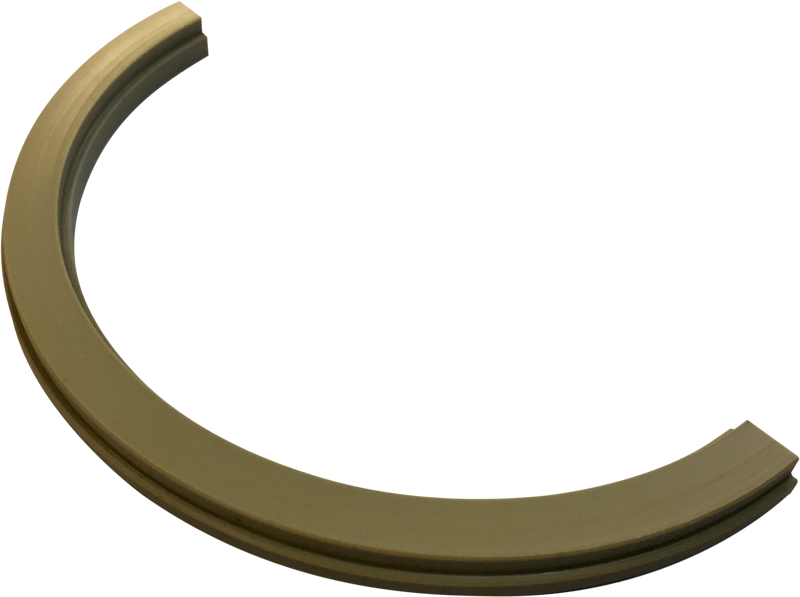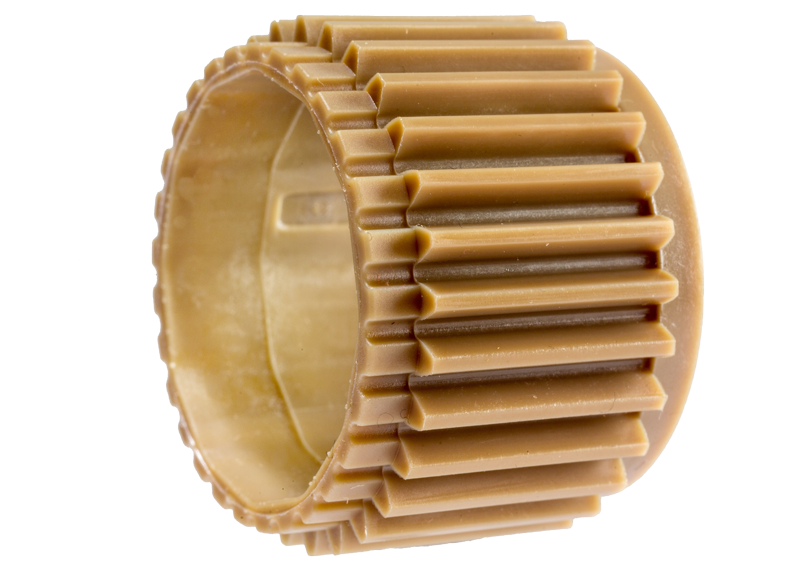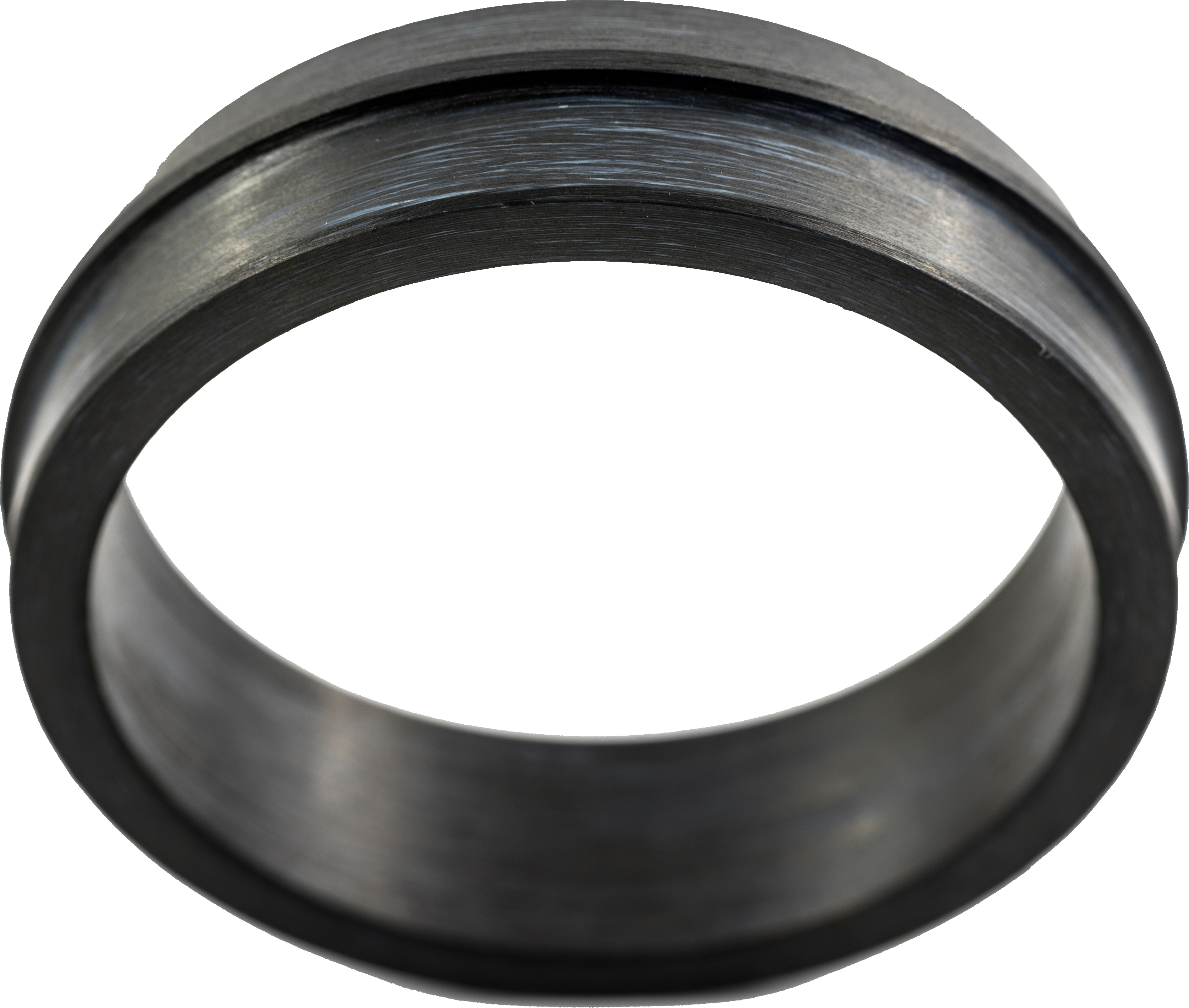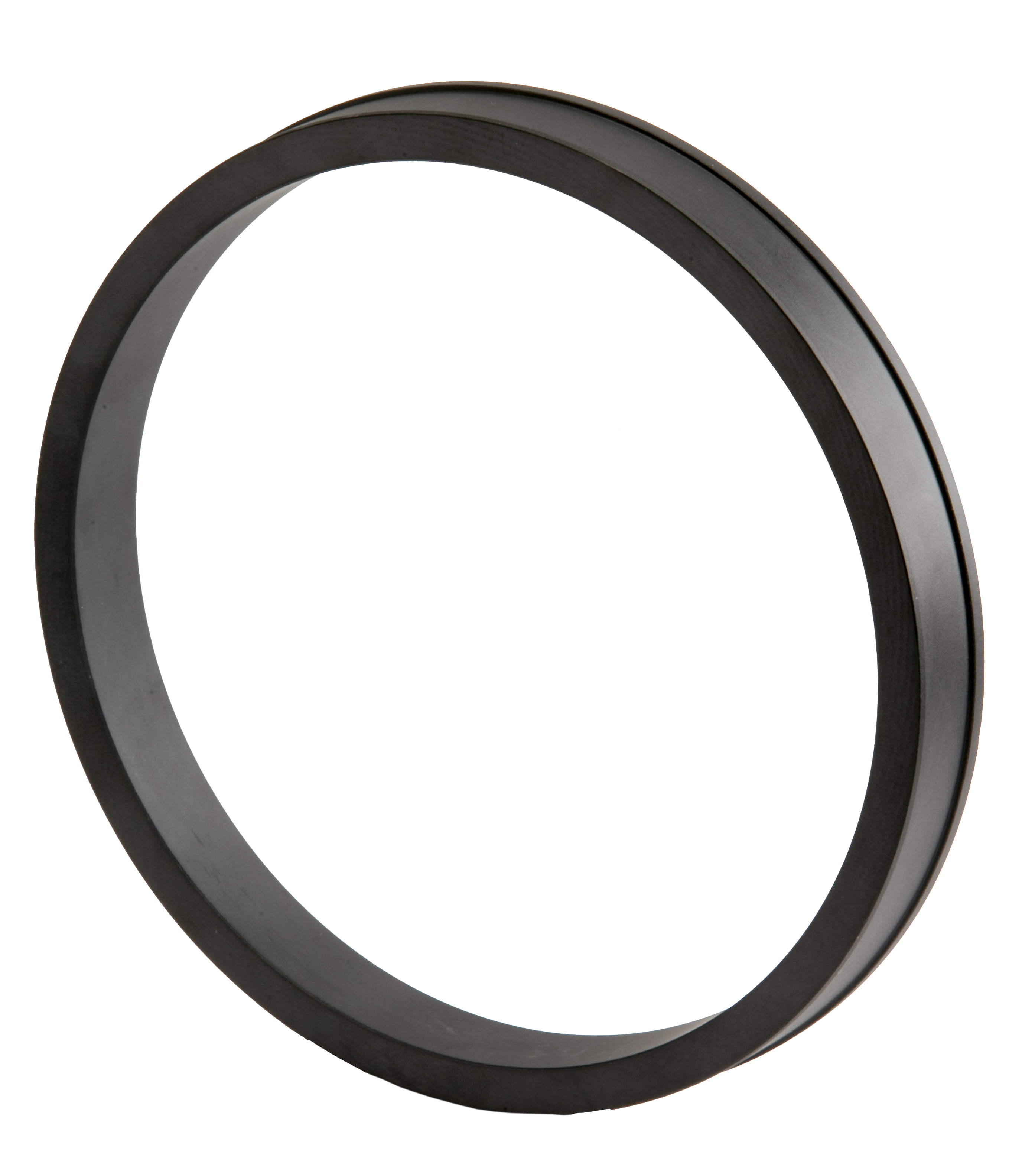PEEK is a renowned high performance plastics
PEEK is a wide spread high performance polymer. It features high mechanical properties and temperature resistance, making it ideal for complex parts.
PEEK plastics are used more and more as a metal substitution
PEEK, polyether ether ketone, is an organic thermoplastic polymer. It is the most common polymer from the PAEK family (polyaryletherketone). Since its first commercialization in 1978, PEEK properties are used in an increasing number of demanding applications.
With its high mechanical properties and a melting point at 343°C, PEEK offers high performance for a large range of properties. PEEK material is often requested as the reference polymer when considering high performance polymer to metal substitution in critical parts.
This polymer is highly resistant to thermal degradation, and different grades allow for use in high or low temperatures.
PEEK material also shows a good chemical resistance, while not as wide as fluoropolymer’s one. It shows good electrical and thermal insulation.
PEEK material is often requested as the reference polymer when considering high performance polymer to metal substitution in critical parts.
It is also much lighter than metal (3 to 5 times lighter) and offers good thermal stability. Therefore it is often used to replace metal parts in harsh environments. Typical uses include bearings. It also shows excellent sealing properties in components like valve seats.
When substituting for metal, it is also used in a large variety of injected parts: springs and gears for example, offer a comprehensive range of assets compared to their metallic counterparts in terms of efficiency and noise reduction.
PEEK properties
- Excellent high temperature performance, with glass transition around 143 °C and melting temperature around 343 °C
- High mechanical strength
- High dimensional stability
- High abrasion resistance
- High creep and fatigue properties
- Low coefficient of friction
- Low weight
Chemical properties
- Resistant to a large range of chemicals
- Low water permeability and low moisture absorption
Electrical properties
- Good electrical properties
- Homogeneous properties on a wide temperature range
PEEK grades, compounds and composites
PEEK exists in different grades. These grades impact the transformation process (injection, molding…), but more important are the final properties. For example, some grades offer a glass transition temperature up to 170°C. Others can be used at low temperature. A good knowledge of the different grades and different suppliers is therefore an asset in transforming good material.
Moreover, PEEK-based compounds are used more and more in the industry to enhance its properties. Common fillers include:
- PTFE
- Carbon
- Graphite
- Glass fiber
There again, fillers have a strong impact on all properties, and reaching the right performance involves a strong knowledge of matrix and filler materials, as well as the mixing and transformation processes.
PEEK is also a common matrix of composites. With its high temperature range and improved, behavior it is near to metallic parts, while dividing their weight by 3 to 5 times.





